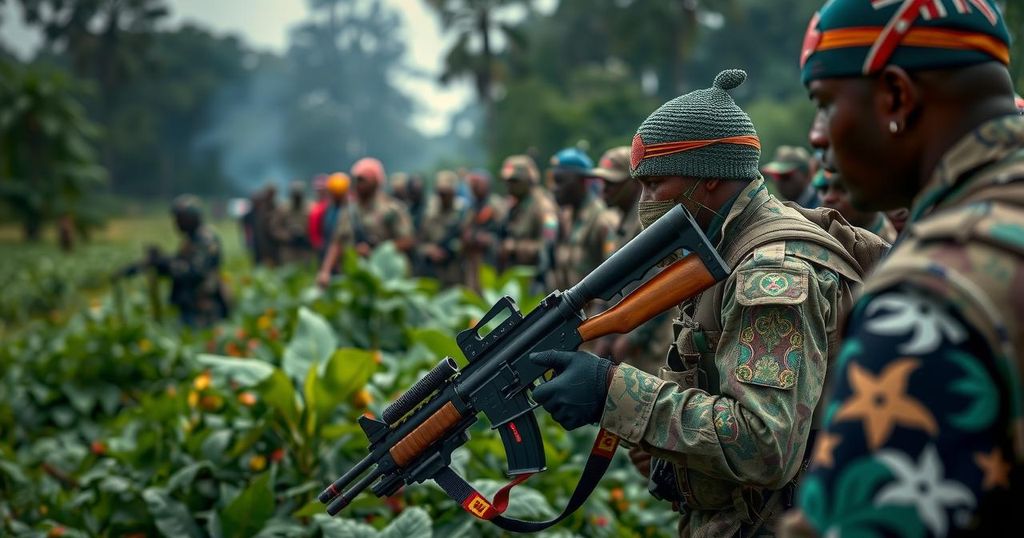Rwanda-backed M23 rebels are reportedly violating a ceasefire and advancing in eastern DRC, seizing territory in North Kivu despite agreements aimed at reducing conflict. The DRC military claims to observe the ceasefire while accusing Rwanda of exploiting the situation. Tensions remain high, with local militias and armed forces clashing as they seek to deter M23 advances.
The situation in eastern Democratic Republic of Congo (DRC) continues to escalate as Rwanda-supported M23 rebel forces reportedly exploit a ceasefire to advance their territorial ambitions. According to local sources reported by AFP, the M23, which is predominantly composed of ethnic Tutsi fighters, has made significant territorial gains since launching a renewed offensive in late 2021. These offensives have resulted in the displacement of thousands and raised severe humanitarian concerns in the region. Despite a ceasefire agreement established between Rwanda and the DRC in early August, reports indicate that the M23 has been persistent in its military activities within North Kivu province, specifically targeting the town of Pinga, a key strategic location known for its airstrip and loyalist stance. The DRC’s military leadership asserts that they have adhered to the ceasefire, accusing Rwanda of “taking advantage” of the truce to gain control of vital areas. Even though the armed forces of both Rwanda and the DRC have largely respected the ceasefire, various militias affiliated with both sides have repeatedly contravened the agreement. On October 23, the M23 successfully captured the town of Kalembe after clashes with the Wazalendo coalition, consisting of militias that support the Congolese military. Since then, the M23 force has seized additional towns on their way to Pinga, prompting the Wazalendo to engage in combat alongside the Congolese army against M23 forces. Reinforcements have been dispatched by the Congolese armed forces to bolster the defensive efforts, although no casualties have been reported as of yet. Following the capture of Kalembe, Angola, which mediated the ceasefire, condemned the actions of the M23 as a “flagrant violation” of the agreement. In a similar vein, France has expressed its disapproval of the continuing offensives launched by the M23, emphasizing the urgent need for stability in this resource-rich but troubled region of the DRC, which has suffered from violence and turmoil for nearly three decades.
The Democratic Republic of Congo has been embroiled in conflict for several decades, primarily fueled by the presence of various armed groups and militia factions operating in the eastern part of the country. The M23 rebel group, active since 2012 but experiencing a resurgence, is known for its ethnic Tutsi composition and has been accused of receiving support from Rwanda. The region is not only strategically significant due to its mineral resources but has also become a battleground for numerous rival factions, leading to widespread humanitarian crises and instability. Ceasefire agreements have been negotiated on multiple occasions, yet violations remain frequent as competing interests continue to intersect in this geopolitically sensitive area.
The ongoing hostilities in eastern DRC, particularly the actions of the M23 rebel group, have brought renewed attention to the fragile ceasefire between Rwanda and the DRC. The military advancements of the M23 in violation of the truce raise serious concerns over the effectiveness of diplomatic agreements in ensuring peace in the region. The situation remains complex with humanitarian implications and necessitates a concerted international response to mitigate the crisis.
Original Source: www.barrons.com






